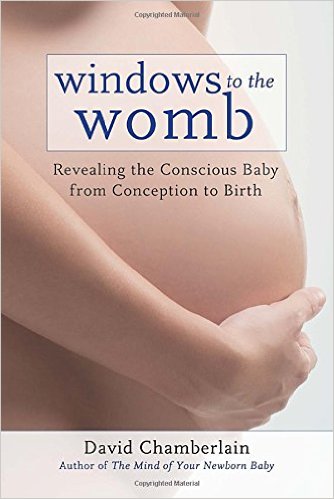The title of this blog is, admittedly, a shameless attempt to grab your attention and, perhaps, cause you to smile at a time when the country’s mood is in turmoil. I believe there are lessons to be gained from the Cubs’ first World Series championship in 108 years that bear on our effort to live out a whole Christian faith as communities of believers. You’ll find ten below.
A vision and a plan are needed: The Cubs’ World Series victory did not happen by accident. Theo Epstein was hired as president of baseball operations for the Chicago Cubs in 2011. In 2012, the Cubs lost 101 games out of 162. In 2013, they were barely better as they lost 96 while winning just 66. But Epstein had a plan for getting the Cubs to the championship level just as he had taken the Boston Red Sox to two World Series victories. It unfolded over time. It involved change in almost every aspect of the Cubs’ organization. And it worked. What vision and plan are you part of for God’s desires for this world? Do you know what your gifts are? Have you figured out how to use them for maximum impact?
Recognize needs and seize opportunities: Plans can only go so far. There are times when you must adapt, recognize critical moments, and act decisively to pursue opportunities you didn’t expect. Recognizing their need for better relief pitching in middle of this season, the Cubs acquired pitcher Mike Montgomery (and another pitcher) from Seattle on July 20 this year. Five days later the Cubs traded four good prospects to the Yankees for the hardest throwing pitcher in baseball – relief pitcher Aroldis Chapman. Both Montgomery and Chapman played key roles in their regular season and playoff success. In fact, Montgomery secured the final out in Game 7. God gives us agency and free will to make smart choices and to adjust to changes in life. We should be on our toes and not on autopilot with the assumption that God will take care of everything.
Work collaboratively and joyfully: Epstein is brilliant. But he hired people into the organization who were also smart and good at their particular functions, whether that be scouting or marketing. And from all accounts, he let them do their jobs, working with them in collaborative ways. One of the reasons the Cubs were so fun to watch, too, was the genuine fun and friendly bonds the players seemed to enjoy together. Maddon encouraged them to keep loose. You and I need each other and other Christians in whatever circumstances we’re in to be most effective for God. These should be relationships of mutual respect and cooperation. And there should be some lightness and joy.
Expect a crooked path to success: The Cubs didn’t go 162-0 in the regular season this year. At one point in the season, they actually began to sputter. During the National League Championship Series, they fell behind the Dodgers. They were down 3-1 in the World Series to the Indians. They lost their 6-3 lead in Game 7 in the bottom of the eighth inning. Their spirits were nearly crushed. Some players were even crying during the rain delay before the 10th inning bregan. Life dishes out pain and exposes one’s failings. Expect it. Persevere through it.
Failure both teaches and must be forgotten: By the time Cubs’ second baseman Javier Baez came up in the 5th inning of Game 7, my son and I were sure he was going to make another out swinging at pitches miles from the strike zone. He had been 4-for-26 at that point and was, uncharacteristically, making errors in the field. He was facing Corey Kluber, the Indians’ best pitcher. What did he do? He rocked a pitch to center field for a home run. Kluber was then removed from the game. From what the broadcasters said, Cubs coaches had been working with Baez on hitting technique and encouraging him to not try to pull every pitch. It worked. Baez evidently listened. And he had the strength of mind to put his failures behind him, stay composed, and perform at the peak of his abilities in the moment he was in.
Use strengths, work around weaknesses: From about 2012, John Lester, the Cubs’ premier starting pitcher, for some psychological reason, began to lose all ability to throw the ball to any of the bases whether to hold a runner on or to throw a runner out on a ground ball or bunt. This is a fundamental part of being a pitcher, much less a baseball player, and yet he couldn’t do it. Jason Heyward was signed to a huge $184 million, eight-year contract with the expectation that he would be a foundational, complete player for the Cubs. But during the regular season, he ended up batting an anemic .230. And when crunch time came in the World Series he managed only a miserable .150. Yet, both Lester and Heyward made huge impacts as the Cubs found ways to use them. Lester pitched crucial innings. Heyward played great defense in the outfield and gave a talk during the rain delay after the ninth inning that calmed his teammates and helped them come out and win in the seventh game in the 10th inning under tremendous pressure. People around you don’t have to be perfect to be valuable in their role. Neither do you.
Leaders will make mistakes: By the seventh game of the World Series, Joe Maddon’s calm demeanor and relaxed approach to his leadership that we had seen throughout the season had frayed. You could see him grimacing when players made mistakes. He made some pitching moves that were questioned at the time they were made and proved to be bad ones. But in baseball and in the life of a church, even the best of leaders are not perfect. And we shouldn’t expect them to be.
Money helps: According to Spotrac, the Cubs had the fifth highest payroll in Major League Baseball at just over $186 million. Cleveland was at 21st with almost $115 million. Adequate and even generous funding of a church or ministry by people or organizations which have been blessed financially is, similarly, very important.
Cherish shared bonds over time: A friend of mine passed away far too early in his life a few years ago. He was a huge Cubs fan, even when he moved to New Mexico. I remember us having heated (but friendly) arguments about the relative strengths of the Cubs versus the White Sox when we were kids on the sidewalk of our Chicago neighborhood sidewalk on summer days. I found myself thinking often of him during the World Series. I know his family cried upon the Cubs’ victory in large part because they wished they could have shared it with him. I heard of a Cubs’ fan listening to Game 7 at the side of his father’s grave to honor their common connection to the Cubs. All of this is a small taste of what bonds between Christian family members and even between just members should be and can be. Does your church have that shared bond? Do you and others you know have that shared excitement and passion around your mission that is in continuity with past centuries of disciples?
Being lovable isn’t the point: For decades there was an aura of security and comfort around the Cubs. Wrigley Field was a great place to go and enjoy the sunshine and the company of friends. The baseball being played was like background music and was, to many, of no real consequence. People still showed up. There was even a certain comfort in their perennial problems. But playing baseball, like any sport, is ultimately about striving to win. Only if you’re doing everything possible to do so are you really playing the game. Likewise, a Christian life shouldn’t be defined only by being lovable and comforting and looking forward to peace and heaven when we die. Our eternal lives are already under way. The way of life we are part of is about taking on challenges in this world. There is a call to action inherent in being a follower of Jesus. Like the Cubs of 2016, we should be a goodhearted group of people who also are committed down to our very bones to win at the game we’re in. For Christians that means using our energy and abilities to live out God’s goodness and to struggle against evil in this world.






